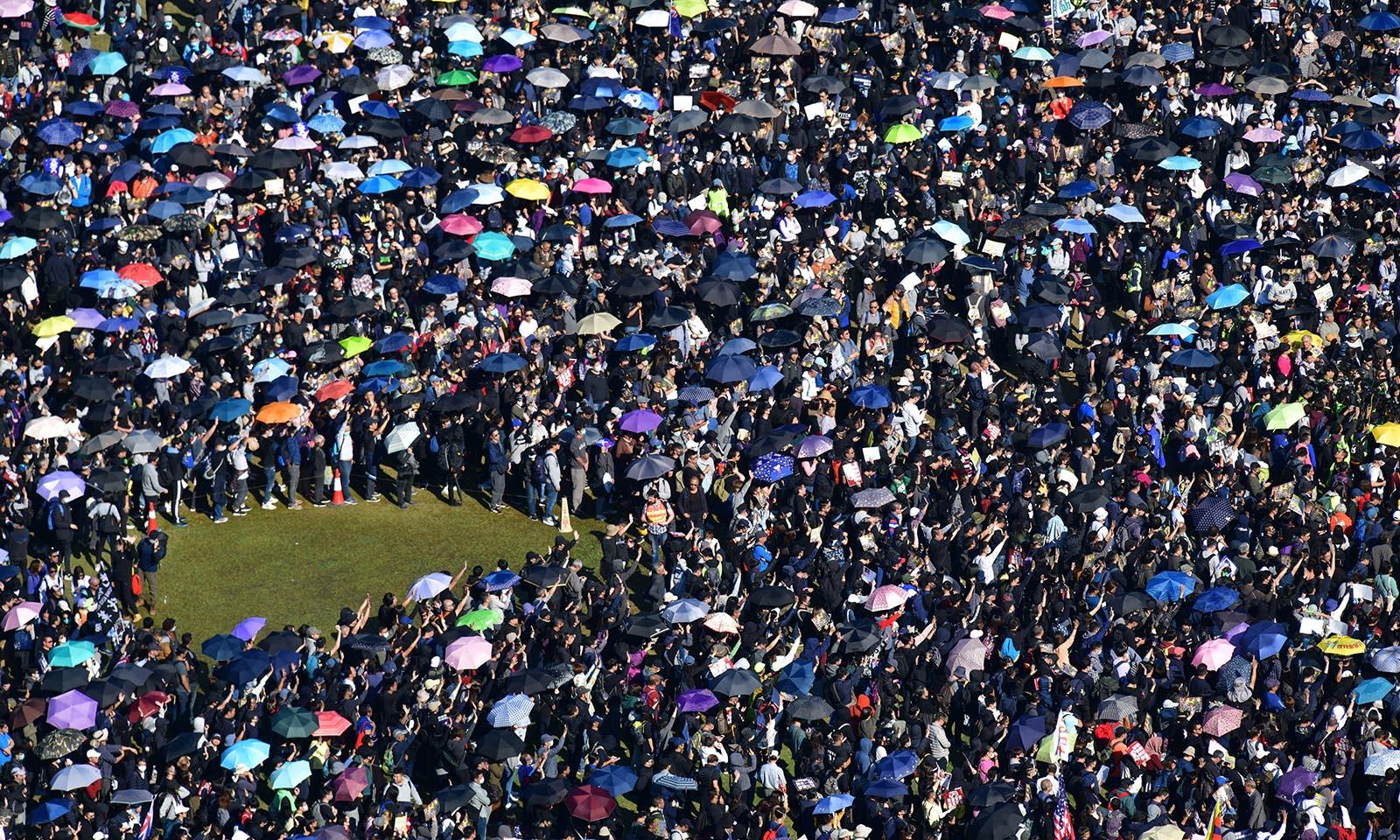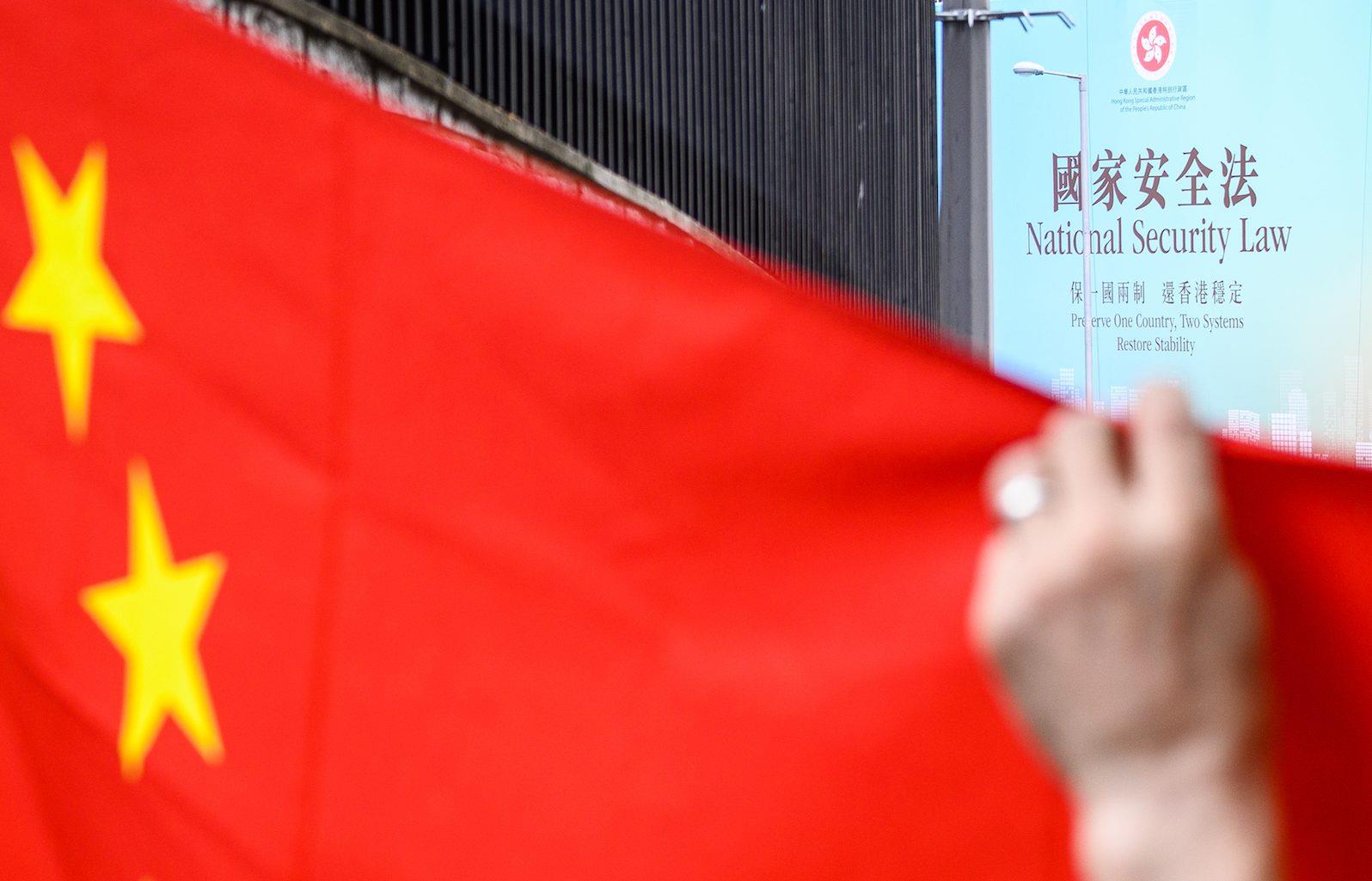(MENAFN- Asia Times) Hong Kong authorities aim to tighten a film censorship law to ban local or foreign movies deemed as contrary to national security, which if passed will squeeze local filmmakers and further darken the semi-autonomous city's once-shining reputation as a free and open society.
The government on Tuesday proposed the Film Censorship (Amendment) Bill, which seeks to empower the Chief Secretary to determine if a film represents a danger to national security. Films that were previously allowed to be screened could have those approvals revoked under the legislation's provisions.
The changes, which will apply to local and foreign-made films, also propose to increase the maximum penalties for showing unapproved films to three years in prison and a HK$1 million (US$128,460) fine, punitively higher than the previous penalties of one year in jail and HK$200,000 fines.
The proposed legal amendments also aim to strip the Board of Review for Film Censorship's authority to consider appeals on films that are deemed to endanger national security. Filmmakers who want to file an appeal may do so only in courts under the proposed legislation.
The bill will be gazetted on Friday and introduced into the Legislative Council for first and second readings on September 1. Critics say the proposed changes aim to bring Hong Kong closer to the strict censorship levels seen in the mainland, where authorities have broad powers to censor TV programs and films that cast the Communist Party in a dim light.
The bid to tighten film censorship rules comes a year after a struggle between the Film Censorship Authority and Ying E Chi, a non-profit organization that produced two local documentary movies about the 2019 anti-extradition protests early last year.
The two movies, namely“Taking back the Legislature” and“Inside the Red Brick Wall,” depicted Hong Kong protesters occupying the Legislative Council building on July 1, 2019, and the police siege against protesters at the Hong Kong Polytechnic University in November 2019. The films won awards and nominations overseas.

People gather at Hong Kong's Victoria Park for an anti-extradition bill rally on December 8, 2019. Photo: Anthony Wallace / AFP
Last summer, Ying E Chi submitted the two movies to the Board of Review for Film Censorship for review but faced harsh scrutiny. The two movies were later shown in the Hong Kong Arts Centre but not in cinemas.
In February this year, Golden Scene Cinema, a small cinema chain, said it planned to show“Inside the Red Brick Wall” in its theater. However, due to heavy criticism from pro-Beijing newspapers, the shows were canceled.
On June 11, the government gazetted new broad guidelines for censors under the Film Censorship Ordinance, saying they should prevent and suppress acts or activities that endanger national security.
The sweeping guidelines also say it is the common responsibility of Hong Kong's people to safeguard the sovereignty, unification and territorial integrity of the People's Republic of China.
The guidelines also said censors should be vigilant concerning the portrayal, depiction or treatment of any act or activity that may amount to an offense endangering national security, or otherwise jeopardize the safeguarding of national security.
According to the newly-proposed Film Censorship (Amendment) Bill, a censor should consider whether the exhibition of a film would be contrary to the interests of national security, so as to provide clear statutory backing for a censor to give due consideration to national security when making film screening decisions.
“We need this provision to cater for circumstances where a film which was graded or approved before, but given the new law enacted and new guidelines issued, there might be chances that we need to reconsider such cases,” said Edward Yau, Secretary for Commerce and Economic Development.
Yau failed to give a concrete answer when he was asked whether past movies like Ten Years and Her Fatal Ways, which criticized or poked fun at authorities, would be banned in the future. Ten Years, a fiction movie released in 2015, speculated that Hong Kong would be“mainlandized” by Beijing within a decade to 2025. It was available on Netflix between February 2019 and July 2021.
The definition of“being contrary to the interests of national security” in the latest amendment was obviously much broader than“endangering national security” stated in the guidelines in June, said Kenny Ng Kwok-kwan, an associate professor at the Academy of Film, the Hong Kong Baptist University.
The proposed changes would crimp the creativity of the whole film production sector as most movie investors and filmmakers would avoid making politically sensitive films, Ng said.

A billboard referring to Beijing's National Security Law for Hong Kong, seen beyond a Chinese national flag held up by a pro-China activist during a rally outside the US Consulate in the city. Photo: AFP/Anthony Wallace
Kristof Van den Troost, an assistant professor at Chinese University's Center for China Studies and a researcher on East Asian films, told RTHK that the proposed changes would have a far-reaching impact on Hong Kong's film industry.
“What concerns me more is that this law seems to be, at least at first sight, broader than the changes in the guidelines. It could be more far-reaching than the changes that were introduced in June,” said Van den Troost.
The government should clarify what would be banned under the proposed film censorship law, Mabel Cheung, a Hong Kong movie director who directed well-known films including Autumn's Tale and City of Glass, said Wednesday. No one in Hong Kong would intentionally make films to threaten national security, Cheung added.
“We have had meetings with officials, mainly to ask them what's allowed and what's not. But the government hasn't been able to give any concrete answer,” Cheung said.
“Now, if it involves national security, the Chief Secretary could ban the movie. The appeal committee will not handle it. They say you can file a judicial review, but the process with a judicial review is long and indefinite,” Cheung said.
Tenky Tin Kai-man, spokesperson for the Federation of Hong Kong Filmmakers, said he was worried that some filmmakers would unintentionally break the National Security Law. Tin said as far as he knew filmmakers would be allowed to seek advice from the Film Censorship Authority about whether their movies could potentially be in trouble.
The proposed law would not suppress Hong Kong's freedom of expression but provide clear guidelines to better protect filmmakers, said Ma Fung-kwok, a pro-Beijing lawmaker representing the Sports, Performing Arts, Culture and Publication sector.
Producers could edit out words, lines or scenes to make sure nothing was contrary to national security, he added.
Read: Beijing stalls plan to impose HK anti-sanctions law
MENAFN25082021000159011032ID1102680526
Legal Disclaimer:
MENAFN provides the information “as is” without warranty of any kind. We do not accept any responsibility or liability for the accuracy, content, images, videos, licenses, completeness, legality, or reliability of the information contained in this article. If you have any complaints or copyright issues related to this article, kindly contact the provider above.